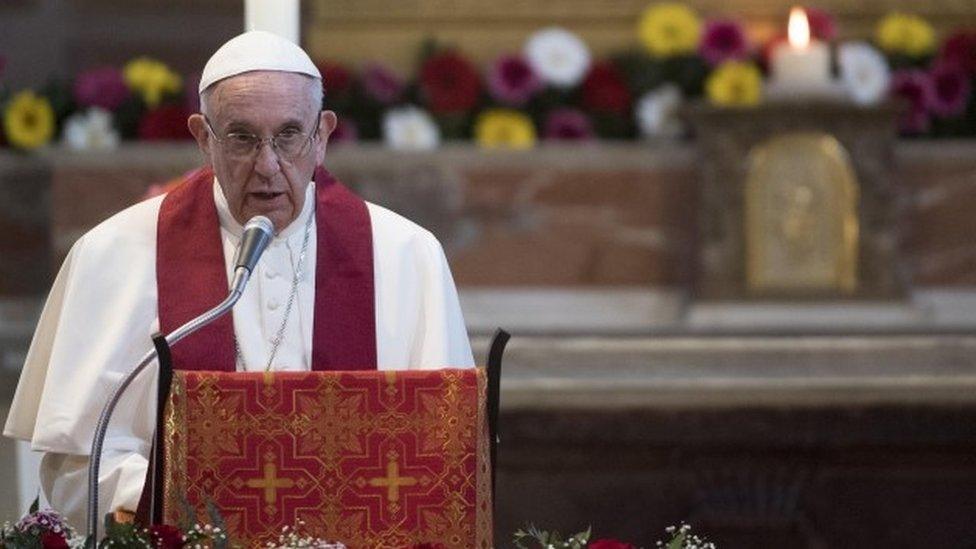Migrant crisis: Mediterranean rescue as 34 drown
- Published
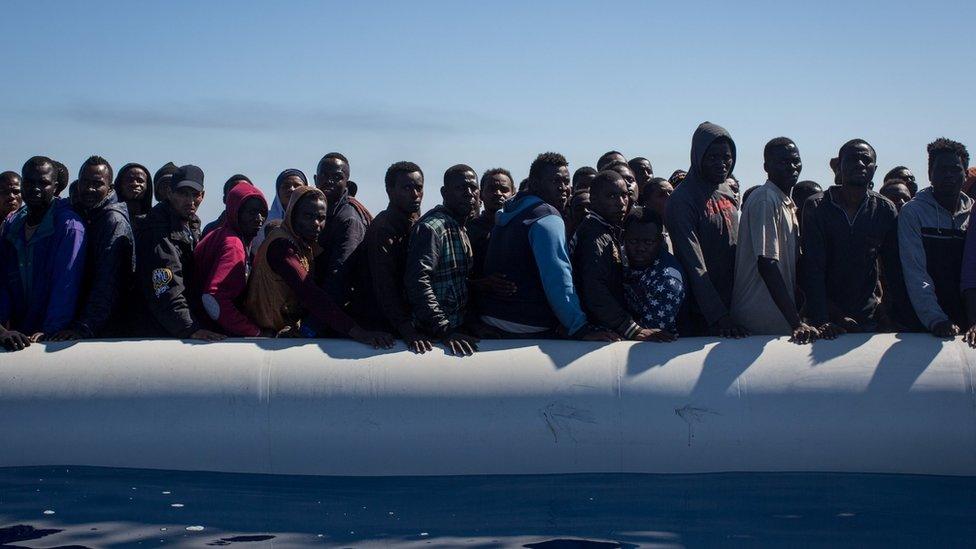
The crossing from Libya to Italy is now one of the busiest used by illicit migrants - and one of the most deadly (file image)
At least 34 migrants, some of them young children, have drowned after falling into the sea off the Libyan coast, Italy's coastguard says.
The overcrowded boat was carrying about 500 migrants when it suddenly listed, sending about 200 people into the water, a spokesman said.
It triggered a frantic operation to search for survivors.
The central Mediterranean route for illegal migration to Europe is currently the busiest.
More than 50,000 migrants have reached Italy this year.
The route is also the most deadly, accounting for the vast majority of the 1,364 people who the UN estimates have drowned in the Mediterranean this year, external.
The waiting game: Aboard the Mediterranean's migrant rescue boats
African migrants sold in Libya 'slave markets', IOM says
One report suggested a private humanitarian group, Moas, had begun lifting people from the crowded wooden boat about 30 nautical miles off Libya, when many fell into the water.
It is thought they may have been knocked off balance by a wave.
Chris Catrambone of Moas tweeted pictures from the scene and said bodies were still in the water - including those of toddlers.
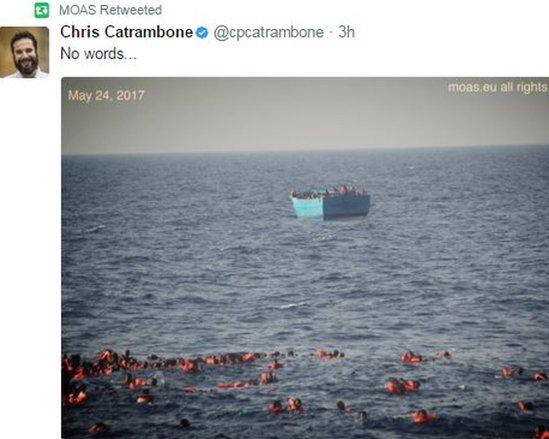
Images posted by Moas showed dozens of people in the water some distance from their boat
The Italian coastguard directed other boats to the scene - including Italian, British and Spanish navy vessels - while a helicopter and military aircraft dropped lifeboats, said AFP.
Meanwhile, the Italian coastguard said operations in the area had rescued a total of 1,800 people from 10 separate vessels on Wednesday.
Leaders of the world's wealthiest nations, the G7, are meeting on the Italian island of Sicily on Friday and the deputy executive director of the UN's children's organisation Unicef urged them to address the continuing tragedy in the seas around them.
"The tragedy of children dying in the Mediterranean is a wake-up call to leaders meeting in Sicily," said Justin Forsyth.
"These extremely vulnerable children need action now."
Libyan coastguard 'violence'
Good weather conditions off Libya have prompted an increase in the number of migrants leaving for Italy.
This man was dramatically rescued from a boat's rudder by Italy's coastguard at the weekend
The waters in the area are busy with boats from the Italian and Libyan coastguards, humanitarian vessels and even scavenger boats hoping to recover abandoned equipment.
German NGO Jugend Rettet said on its Facebook page, external that on Tuesday a Libyan coastguard vessel had fired gunshots as it conducted a rescue.
It said the boat was already carrying migrants, presumably picked up from other vessels, who had panicked and thrown themselves overboard only to be shot at themselves.
"We can not say whether and how many dead there were in the shooting," the 25-year-old captain, named only Jonas, was quoted as saying.
"We had to be careful not to get a bullet ourselves. We are speechless against this crude violence."
It said two boats had then been towed illegally back to Libya where captured migrants can be housed in camps notorious for human right abuses.
Earlier this year, human rights groups voiced concern after EU leaders agreed a deal with Libya's UN-backed government to reinforce its coastguard and curb more attempted migrant crossings.
Libya is a gateway to Europe for migrants from across sub-Saharan Africa and also from the Arabian peninsula, Egypt, Syria and Bangladesh. Many are fleeing war, poverty or persecution.
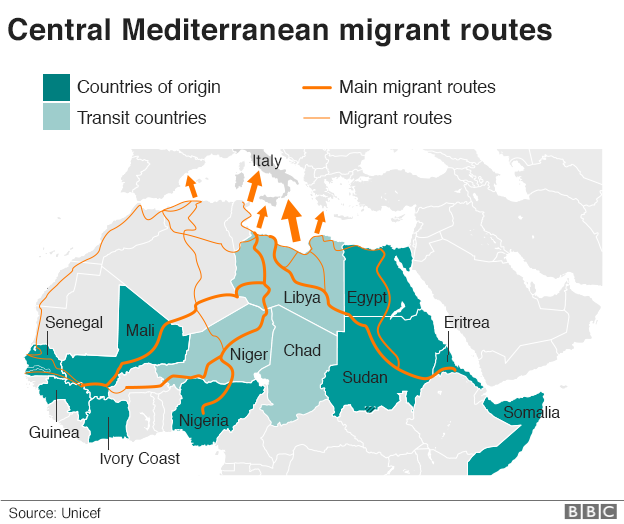
A note on terminology: The BBC uses the term migrant to refer to all people on the move who have yet to complete the legal process of claiming asylum. This group includes people fleeing war-torn countries such as Syria, who are likely to be granted refugee status, as well as people who are seeking jobs and better lives, who governments are likely to rule are economic migrants.
- Published22 May 2017
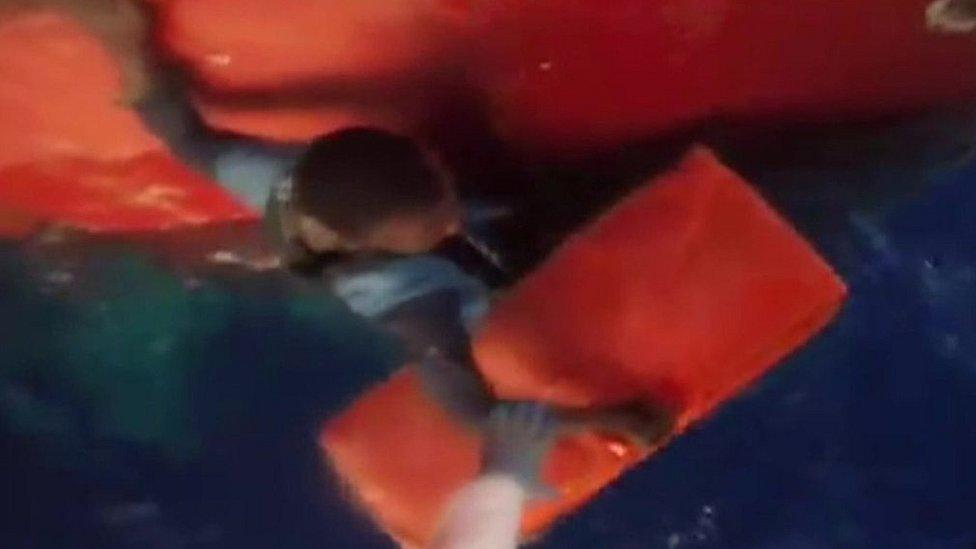
- Published9 May 2017
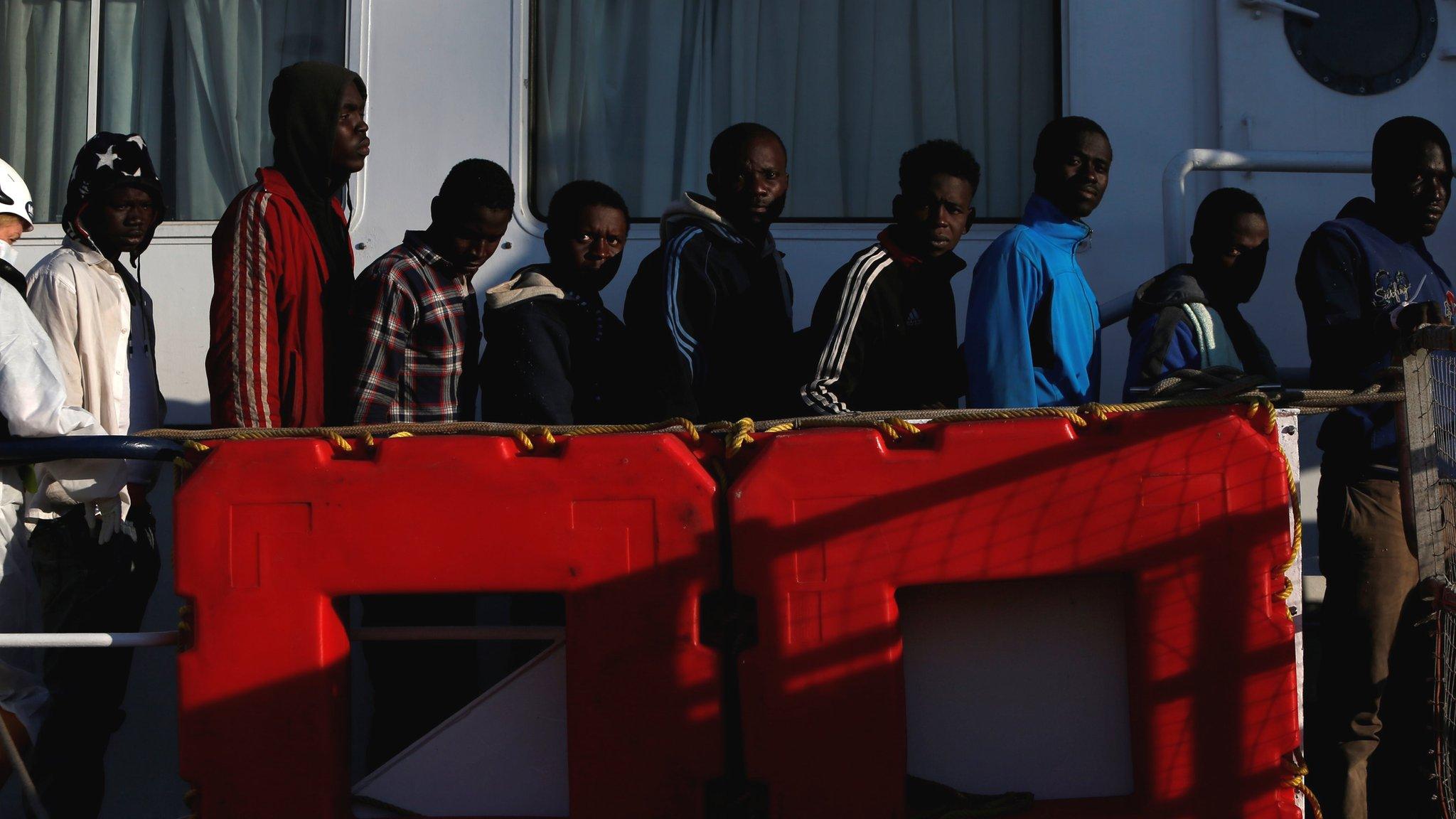
- Published23 April 2017
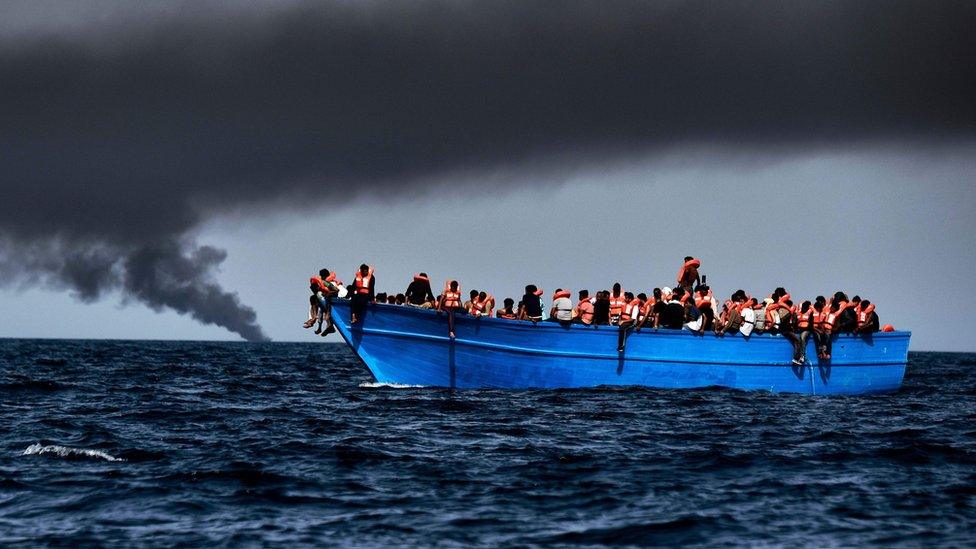
- Published23 April 2017
